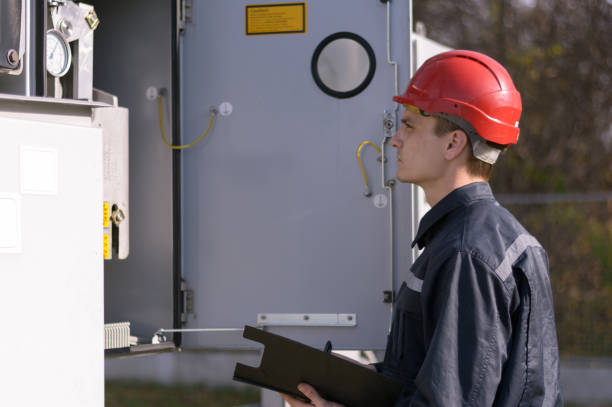Propane delivery has come a long way since the days of horse-drawn wagons. Today, propane companies use trucks and tankers to deliver propane to homes and businesses worldwide. But as technology continues to evolve, the future of propane delivery is looking more and more automated. In this blog post, we’ll explore the exciting advancements in… Continue reading The Future of Propane Delivery: Drones, Robotics, and Automation
Propane delivery has come a long way since the days of horse-drawn wagons. Today, propane companies use trucks and tankers to deliver propane to homes and businesses worldwide. But as technology continues to evolve, the future of propane delivery is looking more and more automated. In this blog post, we’ll explore the exciting advancements in propane delivery technology, from drones to robotics, and how they transform the industry.
Drones: The Sky’s the Limit
Drones have been making headlines for years, but did you know they could revolutionize the propane delivery industry? Drone technology is advancing rapidly, and many propane companies are exploring using drones to deliver propane to remote or hard-to-reach locations. With their ability to fly over rough terrain and deliver propane quickly and efficiently, drones could be a game-changer for the industry.
But there are still some challenges to overcome. One of the biggest is how to transport propane in a drone safely. Propane is a highly flammable gas, so it must be transported safely and securely. However, many companies are working on developing drones with advanced safety features that can transport propane with minimal risk.
Robotics: The Future of Propane Delivery
Robotics has been a buzzword in the tech industry for years, and now it’s making its way into the propane delivery industry. Propane companies are exploring the use of robots to help load and unload propane tanks, as well as to transport propane to customers. These robots can work 24/7, which means faster delivery times and increased efficiency.
Safety is one of the most significant advantages of using robots for propane delivery. Propane is a hazardous material; accidents can happen when humans handle it. By using robots to handle propane, companies can reduce the risk of accidents and keep their employees safe.
Automation: Streamlining the Propane Delivery Process
Automation is already making waves in the propane delivery industry and will only become more prevalent. With automated systems, propane companies can track tank propane levels, schedule deliveries, and remotely monitor tank conditions. Propane deliveries can be more efficient, with fewer errors and delays.
Intelligent sensors are one of the most exciting developments in propane delivery automation. These sensors can be installed on propane tanks and monitor the propane level in real-time. When the propane level reaches a certain point, the sensor can trigger a delivery order, ensuring that customers never run out of propane.
The Future of Propane Delivery is Here
The future of propane delivery is looking bright, with exciting advancements in technology that are transforming the industry. From drones to robotics to automation, propane companies are embracing new ways to deliver propane quickly, efficiently, and safely.
But even with all of these advancements, it’s important to remember that propane delivery is still a people-centric business. The propane drivers ensure that homes and businesses have the propane to stay warm and comfortable. As we move into the future of propane delivery, we must continue to prioritize safety, efficiency, and customer service.
Propane delivery is changing, and it’s changing fast. Propane delivery’s future looks more automated and efficient, from drones to robotics to automation. While there are still some challenges to overcome, the benefits of these new technologies are clear: faster deliveries, increased efficiency, and improved safety. As propane companies continue to embrace these new technologies, we can look forward to a future powered by propane that is sustainable, safe, and efficient.






























